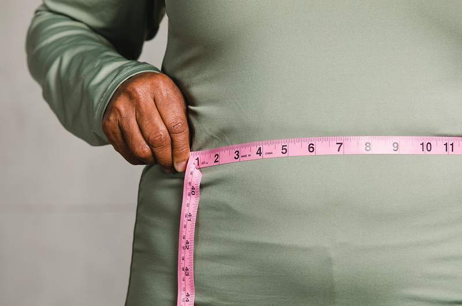Is our weight loss theory upside down?
- Jul 7, 2023
- 3 min read
Updated: Jan 17, 2025
If you've tried numerous calorie controlled, low fat diets and still can't keep the weight off then this blog post is for you! Here we will tell you why your repeated diet attempts keep failing and how a new approach to weight loss works better, is more sustainable, will curb your food cravings and give you back your zest for life.

HAVE WE GOT IT WRONG ON WEIGHT LOSS?
As we all know, there has been a huge rise in the incidence of obesity in the UK in the last 50 years, corresponding to a huge change in our food environment that has seen us eating more ultra-processed foods, ready-meals and takeaways. These calorific foods contain large amounts of hidden sugars and unhealthy fats that tamper with the appetite control mechanisms in the brain and lead to over-eating.
Calories in, calories out theory
The conventional response to weight-loss is to reduce our intake of calories whilst increasing our expenditure, the so called ‘calories in, calories out’ theory of weight loss or the popular ‘eat less, move more’ idea. This conventional approach seems logical, after all, it makes sense that eating less calories than you are burning ought to lead to weight loss. And initially it does.
However, ask the many thousands of people who have faithfully applied this theory over many years by diligently sticking to various low calorie, low fat diets if it works for the long-term and you will hear a resounding no! In fact, most people who ‘diet’ in this way actually end up gaining more weight over the years despite having enormous willpower and making huge nutritional sacrifices.

Why doesn’t it work?
Well, the calories in, calories out theory takes no account of the source of the calories. Calories come from the foods that provide us with energy, the macro-nutrients – fats, carbohydrates, and protein. The way our body deals with each of these macro-nutrients varies enormously. Carbohydrates, our main source of energy, are digested into sugars before being absorbed into the blood. These sugars, raise our blood sugar which stimulates the hormone insulin to be secreted. Insulin helps sugar to pass into cells, particularly in the liver and muscles, where it is used for energy. Any excess sugar is stored as glycogen or turned into fat and stored around the belly, hence insulin is also known as the fat storage hormone.
Hormones matter
If carbohydrate consumption is low and blood sugars don’t rise, then insulin levels stay low and we begin to burn fat for energy instead. Fat burning is only possible when insulin levels are low and insulin levels will only be low if blood sugar levels are low. Insulin is a hormone, hormones matter!
Since a typical diet is composed of about 55% carbohydrates, 30% fats and 15% protein, simply reducing the number of calories consumed without changing the composition of macronutrients will not lead to a reduction in insulin levels and hence will not allow fat burning to take place normally. In fact, your body will respond to the calorie drop by lowering your metabolic rate to conserve energy and increasing your appetite to make you eat more! This leads to food cravings, tiredness and brain fog and eventually you will cave in and start eating more calories again, putting the weight back on and more!
Hormone theory of weight loss
However, if you change the macronutrient composition, by reducing the carbohydrate intake and increasing the fat intake (counterintuitive, I know), your insulin levels will remain low and allow your body to burn its own fat. This will lead to consistent, sustainable weight loss without leading to hunger or lowering of metabolic rate, so you will continue to have lots of energy whilst losing the weight. There are now literally hundreds of research papers that champion this ‘low carb’ diet approach and millions of people around the world who testify to its success.

How to do it
The main rule of thumb is stop (or massively reduce) your consumption of sugary foods and drinks (including fruit juice), refined carbohydrates (bread, flour, rice and pasta) and starchy vegetables (most root vegetables), and eat plenty of green, leafy vegetables and other vegetables that grow above ground. Restrict fruit intake to 1-2 portions per day (berries have less sugar) and increase consumption of healthy fats (olive oil, butter, coconut oil, full-fat yoghurt and oily fish). Protein should come from meat and fish or legumes and pulses if you are vegetarian or vegan. Protein at every meal will satisfy hunger sooner and help you to stop snacking.

.png)



Comments